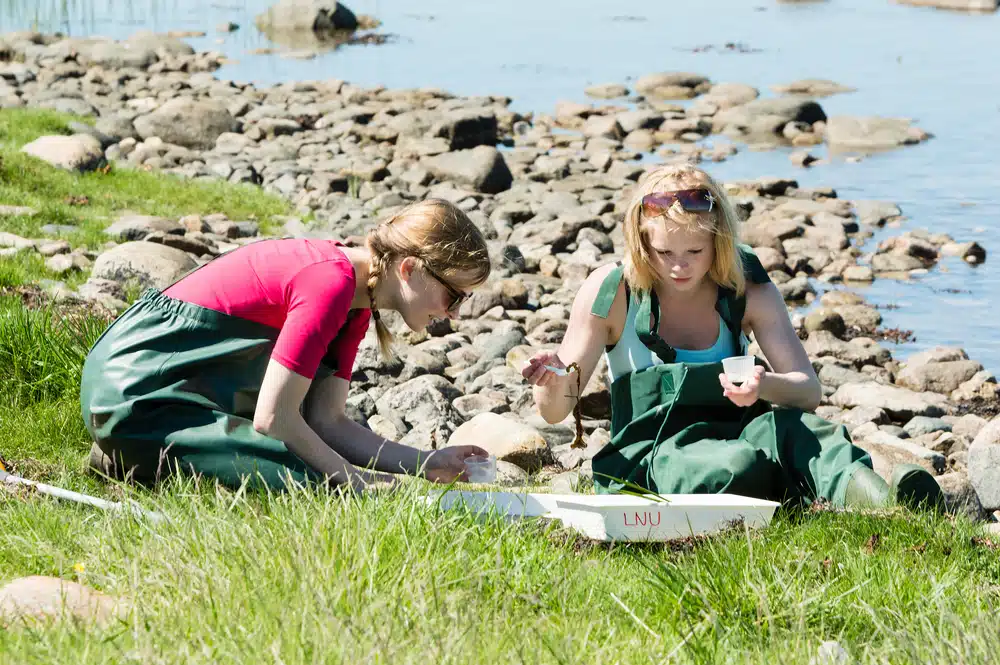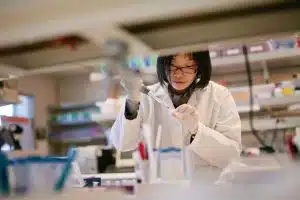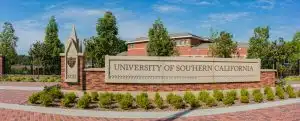Requirements for a Biology Major at USC
USC is known for its rigorous admission process, which serves as a sieve, filtering out those who are unprepared for the academic challenges that lie ahead. The requirements for a Biology major at USC are stringent, but they are built upon the bedrock of the university’s admission criteria. These criteria are your first hurdle and set the tone for the academic rigor you’ll encounter throughout your college journey.
Overview of USC’s Biology Program
USC’s Biology program, a part of the distinguished Dornsife College of Letters, Arts and Sciences, is renowned for its robust curriculum and outstanding faculty. The program seeks to give students a balanced understanding of the principles of biology, the tools to investigate biological phenomena, and the ability to apply this knowledge in numerous fields.
At USC, the Biology program is designed to provide students with a comprehensive education in the life sciences. From the molecular level to the study of ecosystems, students are exposed to various topics that form the foundation of modern biology. The program emphasizes critical thinking, problem-solving skills, and hands-on laboratory experience to prepare students for the challenges they may face in their future careers.
One of the hallmarks of USC’s Biology program is its commitment to interdisciplinary research. Students can collaborate with faculty and fellow students from other departments, such as chemistry, physics, and computer science, to tackle complex biological questions. This interdisciplinary approach fosters creativity and innovation, allowing students to explore the intersections between scientific disciplines.
The Importance of Biology in Today’s World
In this age of technological advancements, biological knowledge offers a key for deciphering numerous issues. From healthcare to environmental preservation – a firm grasp of biological concepts enables us to make strides toward solving these problems. USC’s biology program shines in this context, with opportunities to explore and contribute to contemporary biological research.
Understanding biology is crucial for addressing pressing global challenges. With the increasing threat of infectious diseases, the need for advancements in medical treatments, and the urgency to protect biodiversity, the study of biology has never been more relevant. USC’s Biology program equips students with the knowledge and skills to tackle these complex issues head-on.
Moreover, biology is not just limited to the laboratory. It has far-reaching implications in various sectors, including agriculture, biotechnology, and conservation. By studying biology at USC, students gain a deep understanding of the interconnectedness of life and the impact of human activities on the natural world.
Unique Features of USC’s Biology Program
The strength of USC’s Biology program lies not just in its content but also in its structure. It emphasizes research, guiding students to explore beyond the classroom and delve into original scientific studies. Under renowned faculty members’ mentorship, students can contribute to ongoing research projects and gain valuable hands-on experience.
Additionally, USC’s Biology program offers various electives, allowing students to customize their learning journey according to personal interests and career goals. Whether it’s marine biology, genetics, or neuroscience, students can choose from diverse courses to deepen their understanding of specific areas within the field of biology.
Furthermore, USC’s location in Los Angeles provides unique opportunities for biology students. The city is home to numerous research institutions, biotech companies, and healthcare facilities, offering students the chance to engage in internships and gain real-world experience. This proximity to industry and academia enhances the learning experience and opens doors to future career opportunities.
Core Coursework for Biology Majors at USC
Majoring in Biology at USC requires taking a series of fundamental and advanced courses to ensure a thorough understanding of biological principles and techniques. As a Biology major at USC, students embark on an exciting journey of scientific exploration.
The curriculum is carefully designed to provide a comprehensive education in the field of biology, equipping students with the knowledge and skills necessary for a successful career in various biological disciplines.
Fundamental Biology Courses
These foundational courses are the building blocks of a Biology major’s education. They are designed to develop a deep understanding of Cell Biology, Genetics, and Evolution, which form the bedrock of modern biological research.
Students begin their journey by delving into the intricate world of Cell Biology. They explore the structure and function of cells, unraveling the mysteries of organelles, membranes, and cellular processes. Through hands-on laboratory sessions, students gain practical experience in cell culturing, microscopy, and molecular biology techniques.
Next, students dive into the captivating realm of Genetics, where they unravel the secrets of heredity and the mechanisms behind the inheritance of traits. They explore the intricacies of DNA, genes, and chromosomes, learning how genetic material variations give rise to life’s diversity. In the laboratory, students conduct genetic experiments, honing their DNA extraction, PCR, and genetic mapping skills.
Evolutionary Biology takes students on a journey through time, exploring the processes that have shaped life on Earth. They delve into the mechanisms of natural selection, adaptation, and speciation, gaining a deeper understanding of the interconnectedness of all living organisms. Field trips and research projects allow students to witness firsthand the marvels of biodiversity and the forces that drive evolutionary change.
Alongside these fundamental courses, students also explore the vast diversity of life forms in introductory Botany, Zoology, and Microbiology courses. They delve into the world of plants, studying their anatomy, physiology, and ecological roles.
In zoology, students explore the animal kingdom, from invertebrates to vertebrates, unraveling the intricacies of their anatomy, behavior, and evolutionary history. Microbiology introduces students to the fascinating world of microorganisms, from bacteria to viruses, exploring their roles in health, disease, and the environment.
Advanced Biology Courses
Building upon the solid foundation laid by the fundamental courses, advanced coursework in Biology at USC delves deeper into the complexities of the discipline. These courses explore cutting-edge topics and emerging research areas, preparing students for the challenges and opportunities of the ever-evolving field of biology.
Molecular Biology takes students on a fascinating journey into the molecular mechanisms that underpin life. They explore the structure and function of DNA, RNA, and proteins, unraveling the intricate gene expression, regulation, and signal transduction processes. Through advanced laboratory techniques such as DNA sequencing, gene cloning, and protein purification, students gain hands-on experience in the tools and techniques used in molecular biology research.
Biochemistry delves into the chemical processes that occur within living organisms. Students explore the structure and function of biological molecules, such as carbohydrates, lipids, and enzymes, and delve into the intricacies of metabolic pathways.
They investigate how cells generate and utilize energy, gaining a deeper understanding of the biochemical basis of life. Laboratory experiments in biochemistry allow students to explore enzymatic reactions, metabolic profiling, and protein structure determination.
Genetic Engineering introduces students to the exciting world of gene manipulation and biotechnology. They explore the techniques used to modify DNA and manipulate genes, such as gene cloning, gene editing, and recombinant DNA technology.
Through laboratory experiments, students gain practical experience in genetic engineering, learning how to create transgenic organisms, engineer novel proteins, and develop genetically modified organisms with desired traits.
Elective Options for Biology Majors
Beyond the required coursework, USC Biology majors have many elective options. These allow for a high degree of customization, aiding students in tailoring their course of study toward their areas of interest or intended career paths.
When choosing elective courses, USC offers many possibilities for Biology majors. These electives allow students to explore specific areas of interest within biology and gain a deeper understanding of interdisciplinary connections between Biology and other fields.
Specialized Biology Electives
Specialized Biology electives offer a deep dive into more niche field areas. Courses such as Marine Biology, Parasitology, and Neurobiology are designed for students interested in these areas. These subjects provide a more focused study and often involve extensive research projects.
For those fascinated by the wonders of the marine world, the Marine Biology elective offers a comprehensive exploration of the diverse ecosystems and organisms that inhabit our oceans. Students can study marine organisms up close through fieldwork and laboratory experiments.
Parasitology, on the other hand, delves into the intricate relationships between parasites and their hosts. Students learn about the various types of parasites, their life cycles, and their impact on humans and animals. Students understand the complex interactions between parasites and their hosts through hands-on experiments and case studies.
Neurobiology, a captivating elective, focuses on studying the nervous system and its intricate workings. Students delve into the structure and function of neurons, the transmission of signals, and the role of the brain in behavior and cognition. Through laboratory experiments and research projects, students gain practical experience in studying the complexities of the nervous system.
Interdisciplinary Elective Choices
USC recognizes the increasingly interdisciplinary nature of modern science. Thus, the program offers several electives that intersect with other fields to cater to diverse academic interests. Examples include Bioinformatics, Biophysics, and Biomedicine, each integrating Biology with Computer Science, Physics, and Medicine.
In the Bioinformatics elective, students explore the intersection of Biology and Computer Science. They learn to analyze biological data using computational tools and algorithms, gaining valuable skills in data analysis and bioinformatics software. This elective equips students with the ability to extract meaningful insights from large biological datasets.
Biophysics, another fascinating elective, combines the principles of Physics with Biology. Students delve into the physical properties of biological systems, such as the mechanics of cell membranes and the forces involved in protein folding. Through laboratory experiments and mathematical modeling, students gain a unique perspective on the physical aspects of living organisms.
For those interested in the medical field, the Biomedicine elective offers a comprehensive exploration of the intersection between Biology and Medicine. Students learn about the principles of medical research, the development of new therapies, and the ethical considerations in biomedicine. Through case studies and hands-on laboratory work, students gain a deeper understanding of the practical applications of Biology in the medical field.
What Are the Graduation Requirements?
The requirements for a Biology major at USC are multifaceted, designed not merely to test your knowledge but to sculpt you into a well-rounded biologist. You’ll need to complete core courses, electives, and labs.
But beyond that, you’ll also have to fulfill upper-division requirements, which often include specialized courses and research projects. These are not mere hoops to jump through; they are stepping stones, each taking you closer to the professional world of Biology.
Total Credit Hours Needed for Graduation
Regarding credit hours, consider them the currency of your educational journey. It would help if you amassed several valuable units at USC to claim your degree. For a Biology major, you’re looking at a minimum of 120 to 128 credit hours, depending on your chosen track and any minors or additional specializations you might pursue.
These credit hours blend general education courses, major-specific courses, and electives. It’s not just about accumulating credits; it’s about selecting courses that enrich your understanding of Biology and its myriad applications. Meeting the credit hour requirements for a Biology major at USC is akin to assembling a complex jigsaw puzzle; each piece is integral to revealing the bigger picture—your career.
Capstone Projects or Final Exams: What to Expect
Ah, the capstone project or final exam—a rite of passage for any aspiring biologist. These are not just end-of-the-road assessments but culminating experiences that encapsulate your years of study.
At USC, the requirements for a Biology major often include a capstone project that could range from an in-depth research paper to an experimental study. Alternatively, some tracks may require comprehensive final exams that test your grasp of key biological concepts and theories.
Whichever path you tread, expect to invest significant time, energy, and intellectual rigor. This is your chance to showcase what you know and how you apply that knowledge meaningfully. It’s the academic equivalent of a grand finale, a fireworks display of your skills, knowledge, and passion for Biology.
Graduation Ceremony: Celebrating Your Achievements
Finally, the moment you’ve been waiting for—the graduation ceremony. After years of hard work, late-night study sessions, and perhaps a few existential crises, you’ve met all the requirements for a Biology major at USC. Now it’s time to celebrate.
Donning your cap and gown, you’ll join your peers in a procession that’s as symbolic as it is literal, marking your transition from student to professional. The ceremony is a tapestry of time-honored traditions, from the conferral of degrees to the turning of tassels.
But it’s also a profoundly personal moment to reflect on your journey and look ahead to the boundless possibilities that await you. As you walk across that stage, diploma in hand, know that you’re stepping into a world ripe with opportunity, armed with the knowledge and skills to make a meaningful impact in Biology.
What Career Paths Can You Pursue After Graduation?
The moment you step out of the academic cocoon, diploma in hand, the world unfurls before you like a sprawling landscape of opportunities. A Biology degree is not a one-way ticket to a predetermined destination; instead, it’s a versatile passport that can take you to various sectors, from healthcare and research to environmental conservation and academia.
The requirements for a Biology major at USC are designed to equip you with a robust scientific foundation and transferable skills—critical thinking, data analysis, and problem-solving—highly valued in diverse fields.
Whether you’re drawn to the fast-paced world of medical research or the tranquil settings of a conservation project, a Biology major opens doors to many career paths, each promising its challenges and rewards.
Medical Fields: From Physician to Researcher
If the allure of medicine beckons you, a Biology major is an excellent stepping stone. Many Biology majors pursue advanced degrees in medicine, dentistry, or other healthcare professions. But it’s not just about donning a white coat and stethoscope; the medical field is teeming with roles that allow you to flex your scientific muscles.
You could become a researcher, delving into the intricacies of diseases and developing groundbreaking treatments. Or perhaps genetic counseling is more your forte, where you’d guide patients through genetic tests and what those results mean for their health.
The requirements for a Biology major at USC serve as a comprehensive primer for these roles, providing you with the scientific knowledge and research skills crucial in the medical field.
Environmental Biology: Making a Difference in Sustainability
For those with a penchant for the great outdoors and a passion for sustainability, a career in environmental biology could be your calling. Here, you’re a spectator and an active participant in shaping the world for future generations.
Whether it’s working on conservation projects, conducting field research on ecosystems, or advising policymakers on environmental issues, the roles are as varied as they are impactful. The requirements for a Biology major at USC include courses that touch upon ecology and environmental science, giving you the theoretical and practical tools to contribute meaningfully to this field.
Academia: The Path to Becoming a Professor or Researcher
If the thought of standing at the frontier of human knowledge excites you, then academia might be your arena. Here, you’re not just a consumer of knowledge but a creator, pushing the boundaries of what we know about biology and life itself.
Becoming a professor or researcher requires a commitment to advanced study, usually culminating in a Ph.D. You’ll engage in original research, publish your findings, and have the opportunity to shape the next generation of scientists through teaching.
The requirements for a Biology major at USC lay the groundwork for this path, offering research opportunities and a rigorous academic curriculum that prepares you for the challenges of graduate school and beyond.
Ready to Navigate the Complex World of College Admissions?
You’ve just delved deep into the requirements for a Biology major at USC, from coursework and labs to career paths and beyond. It’s a lot to take in. The journey to college—specifically to a specialized field like Biology—is filled with decisions that can shape your future. That’s why you shouldn’t go it alone.
Let AdmissionSight Be Your Guide
At AdmissionSight, we specialize in turning college aspirations into admissions success. Our team of experts is here to provide personalized guidance through every step of the admissions process. Whether you need help choosing suitable courses, crafting an unforgettable personal statement, or preparing for crucial interviews, we’ve got you covered. Take the Next Step: Schedule a Free Consultation Today!
Don’t leave your college future to chance. Click the button below to schedule a free, no-obligation consultation with one of our college admissions specialists. Let’s make your dream of becoming a USC biology major a reality!










































